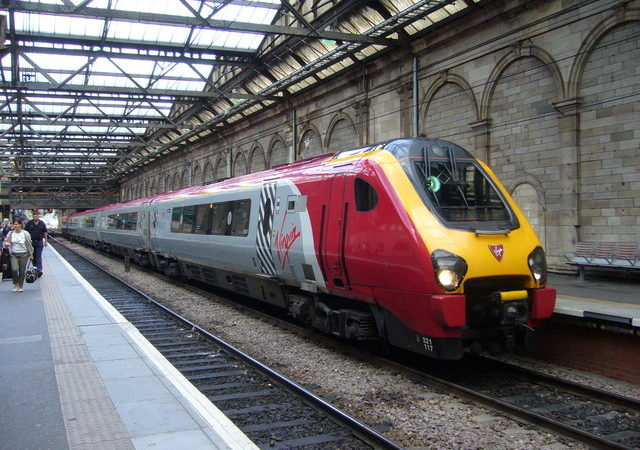Opponents argue hiking ticket prices up so much will put people off train travel and could lead to more cars clogging up the roads

Rail fares are increasing by 2.6% in England and Wales just as the government is set to announce a continued freeze to fuel duty.
Train ticket prices are rising above the rate of inflation for the first time since 2013, a move which could price many middle income earners out of travel by rail.
And yet, at the same time, the government is expected to announce a continued freeze on fuel duty for polluters in its upcoming Budget.
The government said the ticket price increase is due to a need to prop up rail services during a year when they have taken such a hit. Train passenger numbers are currently only at about 14% of normal levels because many people are working from home due to the pandemic.
Yet opponents of the decision argue hiking ticket prices up so much will just put people off train travel altogether and could lead to more cars clogging up the roads.
Despite this, the freeze on fuel duty has now been in place for a decade. It’s a move that has been widely criticised by environmentalists and green groups.
Friends of the Earth’s head of policy Mike Childs said: “The government can’t keep freezing fuel duty if it seriously wants to confront the climate emergency.
“The decision by successive chancellors to keep fuel duty at the same rate has led to a significant rise in UK carbon emissions.
“Wednesday’s Budget is a critical test of Boris Johnson’s pledge to build back greener. The Chancellor must deliver.”
Johnbosco Nwogbo from We Own It, a group that campaigns against privatisation and for 21st century public ownership, said another rail fare increase is a “slap in the face” for the public after the difficult year many people have had.
Johnbosco Nwogbo said: “Yet another rail fare increase is a slap in the face for the public. After a year of job losses and economic hardship, why would we put up the cost of fares even further?
“We already have eye-wateringly high fares. This will see even more cash taken out of passengers pockets right at the point when we’re seeing restrictions being eased and we’ll start to see people returning to our railways in the coming months. Right now, it’s key workers – the very people who are keeping the rest of us safe – who will face the brunt of this as they’re the ones still taking the train to get to work.
“The pandemic has exposed the failure of rail privatisation. In the good times private companies let the juicy profits roll in. In the bad times the government steps in to subsidise them, bail them out, and make sure passengers are still ripped off in the process. That’s why rail companies were paying out dividends to shareholders before the pandemic, the government has bailed out the industry to the tune of billions during the Covid crisis, and passengers are now being whacked with a massive fare rise.
“The government should recognise this.
“It should bring our railways into public ownership so we can have a railway fit for the 21st century. It would save £1 billion a year – enough to fund an 18 per cent fare reduction.”
Emily Yates from the Association of British Commuters said fare prices are “out of control in this country”
“Fares injustice and transport poverty are out of control in this country, and it’s all down to a government that refuses to take leadership or face difficult decisions on the issue,” she said.
“Due to contractual chaos at the Department for Transport, there is now a rare opportunity to end the tug of war between taxpayers and shareholders and finally run the railway as a national asset; in the public interest and for the public good. This is more important than ever if we want to rebuild the economy after covid.”
Ellie Harrison of Bring Back British Rail added “This crisis is being used by the private rail companies as an opportunity to get what they want: higher profits and zero risk – meanwhile, passengers are being forced to foot the bill.
“If we allow this government to sign new ‘National Rail Contracts’ with these private companies, they’ll be locking us into this broken privatised system for decades to come.
“Instead, we must follow the Welsh Government’s example and seize this opportunity to bring all rail back into public ownership, so it can be run in the interests of passengers and the environment – and get people moving in a sustainable way as we emerge from the pandemic.”
Left Foot Forward doesn't have the backing of big business or billionaires. We rely on the kind and generous support of ordinary people like you.
You can support hard-hitting journalism that holds the right to account, provides a forum for debate among progressives, and covers the stories the rest of the media ignore. Donate today.



